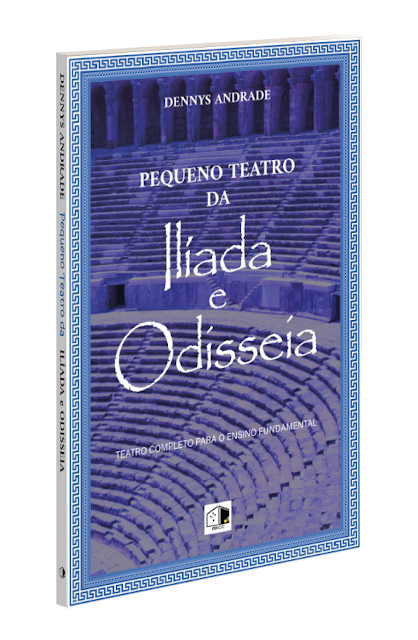Without needing to move in search of food, man stopped being a nomad and took root in the soil. In the “Fertile Crescent” lands, he improved irrigation techniques and expanded agriculture. The production of surpluses favored population growth and the flourishing of trade. Increasing urbanization and technological advances have led to the establishment of increasingly complex societies, organized in polytheistic city-states with their laws, social classes and divine choosen rulers.
Scene description:
The clergyman Parsis walks and finds Fedimia screaming. Artos and Amestris are nearby and approach to hear them.
FEDIMIA
(enters desolate) Agamemnon died! Agamemnon is dead!
PARSIS
What happened? How did Agamemnon die?
FEDIMIA
His house collapsed, fell on him! He still shouted for help but when they pulled him out, he ...(in tears) was already dead.
PARSIS
I know Agamemnon. His house was raised by mushkenu9 Bardiron or by your wardu10helper?
FEDIMIA
Bardiron. It was Bardiron himself.
PARSIS
Well, bring me Bardiron, who built Agamemnon's house!
ARTOS/AMESTRIS
Yes, Father! (both reference and leave, returning with Bardiron)
BARDIRON
Here I am, Father, did you ask for me?
PARSIS
Bardiron, tell me: you are the one who build Agamemnon's new house?
BARDIRON
Yes, Father. Despite our fights we became great friends, like Enkidu and Gilgamesh11. But what is the matter?
PARSIS
Agamenon is dead.
BARDIRON
What a tragedy!!! (hands to head) How did he die?
FEDIMIA
The house you built has fallen on him!
BARDIRON
(disconsolate) No! No...
PARSIS
Bardiron, do you know your punishment12?
BARDIRON
Yes ... (takes a deep breath, long pause) “If the house that the builder built fell and caused the death of its owner, the builder will be killed. If the owner's son dies, the builder's son will be killed ”...
PARSIS
Only Agamemnon died?
FEDIMIA
Yes, Father.
PARSIS
Well take Bardiron away. Before giving the sentence I want to see Agamemnon's cold body.
ARTOS/AMESTRIS
Yes, Father. (Artos and Amestris leave, carrying Bartiron)
***
***
9 Free workers, not slaves, who paid taxes to the State.
10 Slave workers, acquired abroad through war, piracy or trade.
11 Ninhursag, "Mother Goddess" or "Lady of the Gods", the progenitor of most gods in Sumerian mythology, creates Enkidu from clay, which enters a fierce fight against Gilgamesh in the city of Uruk. The two end up becoming inseparable friends.
12 Hamurabi Code, compilation of 282 Sumerian laws, carved on a 2.5 meter high basalt block, originally in the Sippa Temple, present-day Iran.
~









